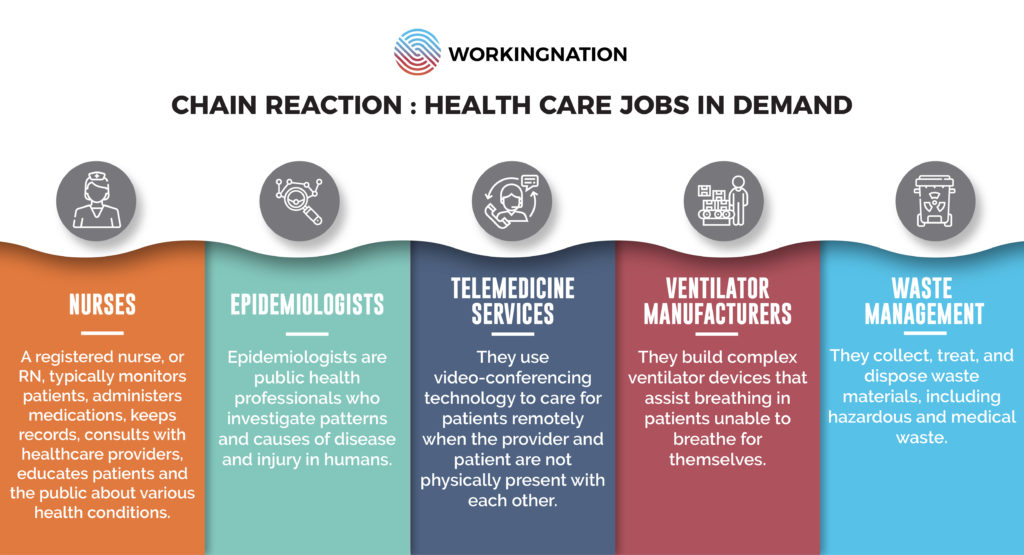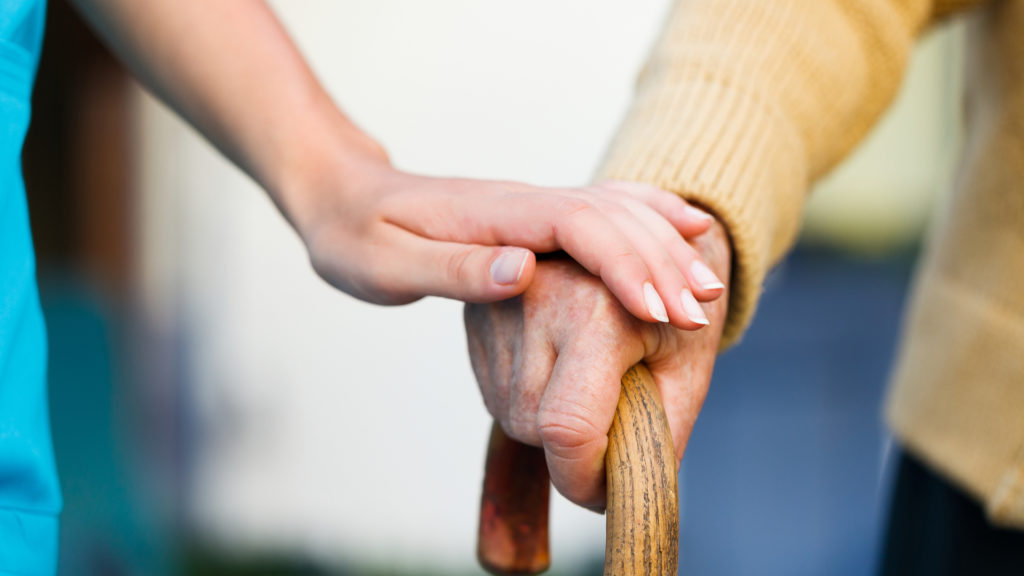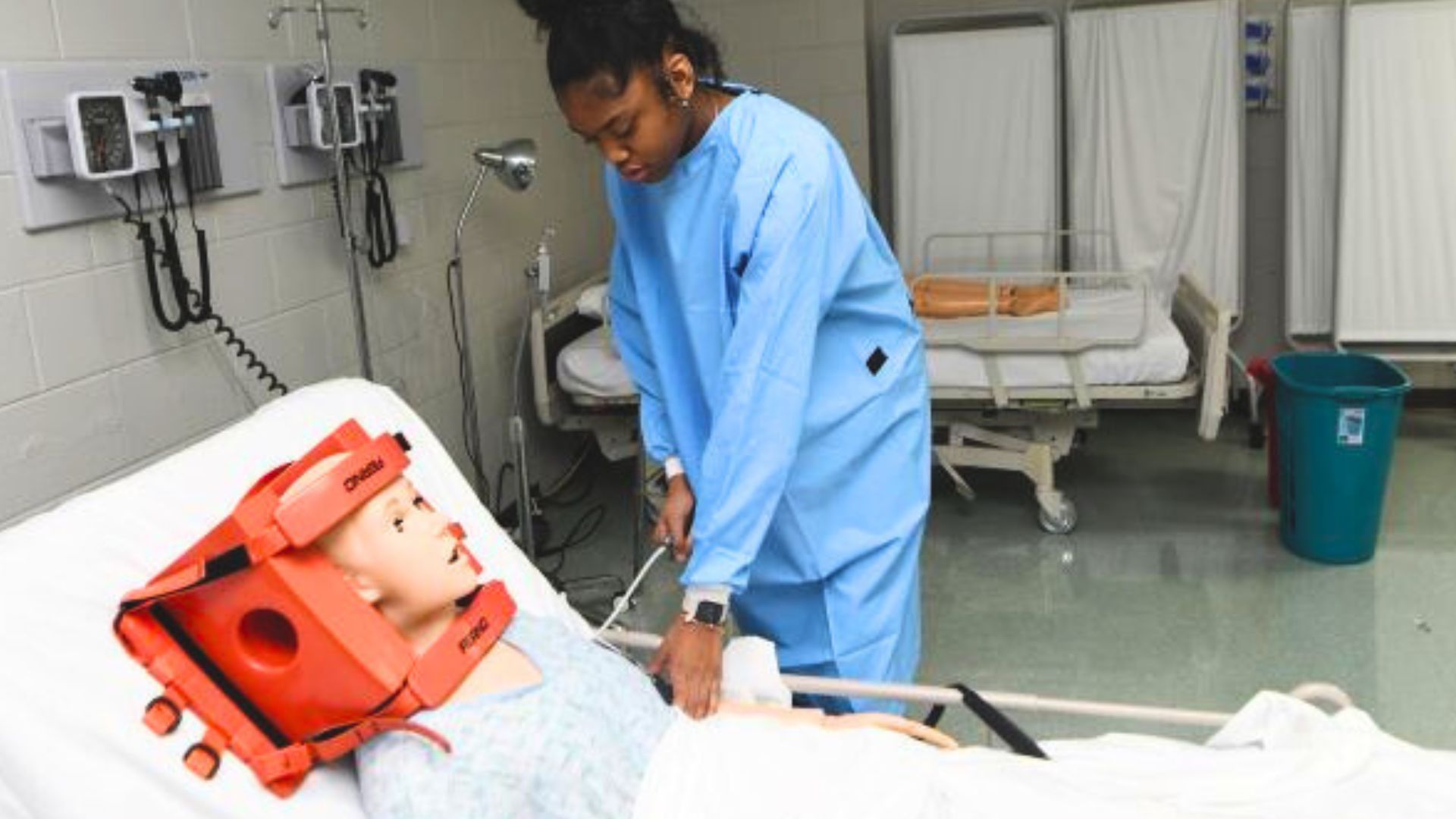
An already-strained U.S. health care system is under additional pressure, as it takes an all-hands-on-deck approach to fighting the COVID-19 pandemic sweeping the country.
The number of cases is expected to grow so rapidly that the U.S. Navy is preparing two of its hospital ships to support the expected increase in patients. Leisure cruise lines Carnival, Holland America Line, Princess Cruises and P&O Cruises Australia may also be converted to floating hospitals to handle trauma cases.
Where patients can be cared for isn’t the only shortage that needs to be addressed. As Liam Yore, a board member of the American College of Emergency Physicians told the Washington Post, “The risk to our health care workers is one of the great vulnerabilities of our health care system in an epidemic like that.”
Long hours, supply shortages, and the exposure to confirmed cases are leading to the health care workers themselves being diagnosed and unable to provide care.
And it’s starting to show, according to Glassdoor. Its new report shows that job openings for nurses surged this month because of the COVID-19 pandemic. Emergency medicine physician Dr. Hala Sabry has seen it first-hand.
“We have a shortage of nurses and this has been also historic,” Sabry says. “This is going to be really important because although one doctor can treat a number of patients, we do have recommendations for caps on the number of patients for nurses.”
“Now, not every state follows this, but it’s really impossible for nurses to follow as many patients as we’re following because they’re completing a lot of tasks and they have the most contact with these patients so they’re most likely to get sick as well. When those nurses who are on the front lines with us are getting sick, we need backup nurses.”
Glassdoor says it saw a 25 percent jump in RN job openings the first week of March. Type in “coronavirus” on job posting site Indeed automatically shows “nurse” and “rn”, an indicator of the growing need.

In addition to the patient load, nurses were already subject to some difficult working conditions even before the outbreak. Sabry says she’s seen nurses kicked, spit on, verbally abused, and more. “They are stretched to the max, often seeing more than four patients at a time, and that’s just not sustainable,” she says.
Related Story: Work in Progress podcast on meeting the demand for certified health care workers
Doctors Needed for Hospitals and Telemedicine
Sabry says other medical professionals on the front lines to combat, cure, and manage the disease alongside nurses are clearly at the highest risk of exposure, and in increasing demand.
“There is a shortage of physicians and this has been a trend for a number of years, and my concern is that this virus is going to show how short we really are,” she says.
“A medical student will finish medical school, apply for residency, and there’s not enough spots for as many trainees who are graduating from medical school. And the reason for that is that these residency spots are funded by the government and the government has cut the spots. We’re not exactly sure why because for a long time there has been a projected physician shortage and we’re seeing that now,” according to Sabry.
Regardless of specialty, Sabry says all physicians are brushing up on their respiratory failure protocols, and not just for the emergency room. Telemedicine and online video services that can address patient needs are also in need of board-certified physicians.

Doctors Extending Their Specialties
While always tight knit, she says she’s seen her fellow doctors come together to keep each other updated on best practices to help patients, such as turning to private social media groups.
“For example, if a patient went to one hospital and got a test and then they go to a second hospital, usually those hospital systems do not share any type of communication. Everything is so segmented…it is very archaic,” Sabry says.
Connecting the Medical Professionals
“So, one of the hacks that we’re doing that I’m really championing with some of my colleagues, is building platforms on social media to connect physicians and to have them speak candidly to each other about what is happening. There isn’t a lot of literature out there on this disease. So, to be able to ask my question and to get some immediate answers from people who are actively treating coronavirus patients or even our colleagues in Italy who are in communication with us – that is so valuable.”
Sabry says in the absence of easier, faster and experienced-based resources, the doctors who are treating COVID-19 patients will continue to leverage technology for the most updated information. “We’re comparing notes because the last thing that I want to do is make a mistake that one of my colleagues had also made. It’s best to learn from each other for the best opportunity for your patient to survive and to do well,” she says.
Other Health Care Professions Needing More Workers
From communicating with patients to sharing information with the public, another job seeing a sharp increase related to the coronavirus is communications associate, according to Glassdoor. The employer-review site says openings for that role jumped from two to 21 in just a week’s time earlier this month, second only to nurses. Social workers, project managers, and lab technicians are also among the top sought-after professionals, according to the report.
In-Home Caregiver Jobs Available
While opportunity surges for some jobs, COVID-19 has taken its toll on others. This week, 70,000 more unemployment claims were filed, attributed to the virus. Travel and tourism, entertainment, and consumer services are among the industries affected. But that’s where companies like Caregiver, Inc., which is in the direct support professionals (DSP) industry may benefit.
Related Story: Certified nursing assistant is an in-demand job
“We see this outbreak to be a benefit to our recruiting initiatives as other industries close and people need employment. We are hiring and will continue to provide job opportunities to those who have been laid off by this unprecedented event as our individuals need to be served 24 hours a day, seven days a week,” says Dau Tucker, Caregiver Inc. chief human resources officer.
While the company has not had a staffing challenge yet, it is using “coronavirus” as a search term on job listing websites. Tucker says they are anticipating a change as schools close and childcare becomes an issue.

DSP do not provide medical care, but rather, they do in-home care for individuals with intellectual and development disabilities. Their responsibilities include supporting daily living skills such as bathing, preparing meals, and dressing. DSP are required to have high school diplomas and compassion for people and their differences.
“Experience is not required. We will train all our Direct Support Professionals on how to provide in home care and support to our individuals served,” he says.
Jobs Preventing the Spread of Coronavirus
Because of the way the virus spreads, ZipRecruiter says jobs to handle the prevention of the virus’ spread and respond once there’s confirmed cases have skyrocketed. Ads for cleaners has skyrocketed 75 percent in March.
As all industries adjust to the new normal of remote working, sheltering in place, and quarantines, and as new cases of COVID-19 are diagnosed every day, Glassdoor expects hiring trends to evolve to address the public health crisis.











